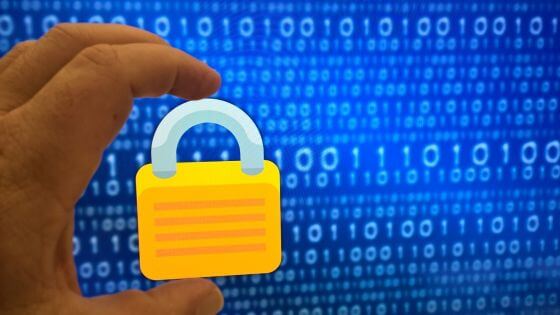Tips for Preventing a Data Breach
A data breach is leaking secure or private information into an untrusted environment. The leak can be accidental or intentional and occur on personal devices such as laptops and tablets or business systems such as servers and networks.
To avoid a data breach, follow these best practices.

Table of Contents
Keep Your Data Safe
Whether personal information or intellectual property, all businesses must protect their data from cyberattacks. A data breach can damage a company’s reputation, financial bottom line, and customers’ trust.
Criminals often gain access to sensitive data by exploiting security flaws in software, hardware, or the network and servers that connect them. Hackers also use malware—malicious software that corrupts devices, networks, and programs—to steal data.
To prevent a data breach, ensure all employees understand the importance of protecting sensitive information on their devices. Please encourage them to password-protect all devices and set them to lock when not in use. Also, be sure that any physical records are destroyed securely—cross-cut shredding or software that overwrites data several times over (degaussing) is best.
If a breach does occur, be transparent with affected consumers about the scope of the incident. Employees and other stakeholders want to know what happened, how it was resolved, and how they can avoid future problems—like identity theft. Providing information early can also limit phishing attacks and other malicious activity.
Change Your Passwords Regularly
Changing passwords regularly is standard advice for online security, but there is little evidence that this practice protects people from data breaches. Some experts think that it is counterproductive.
Ideally, each account should have a unique password, and people shouldn’t use the same password for multiple accounts. This will help prevent hackers from accessing your information across several websites. If a website is hacked, it’s also essential to change the password for that site and other sites where that password may be used.
Regularly changing passwords can limit how long a cybercriminal can access your information. This is especially true if you use a password manager that helps you remember your passwords and two-factor authentication, which can further secure your data.
Changing passwords often can also deter malicious software, such as hardware keyloggers and malware on your computer, from spying on you for long periods. This is because these tools can record your keyboard strokes, making it easier for hackers to see your passwords.
Encrypt Your Data
We all know the essential cybersecurity tips – password protect your devices, use a strong password manager, and enable multi-factor authentication. But what about encrypting your data? You should encrypt your data on all of your digital devices (at rest and in motion), as it makes it much more difficult for attackers to access it.
You are leaving sensitive information unprotected, which leaves you vulnerable to cyberattacks, leading to identity theft, bank account hijacking, and other criminal activities. Whether you’re an employee at a large company or a small business owner, protecting your data from attacks is vital to ensuring the safety of your personal and business information.
If your data is breached, it’s critical to notify law enforcement and any affected individuals immediately. It would help if you also worked to identify the source of the breach and fix any vulnerabilities that contributed to it.
This includes contacting service providers who may have been involved in the breach to ensure they’re correctly remediating security issues.
Finally, it’s essential to consider hiring legal counsel who specializes in privacy and data security. They can help determine whether federal or state laws require reporting a breach.
Monitor Your Network
Having robust security and monitoring solutions in place is one of the best ways to prevent a data breach proactively. This includes security solutions that protect against threats coming over the network and device security solutions to prevent a breach from insiders.
Hackers who gain unauthorized access to a business can use stolen personal and financial information for illicit financial gains or malicious acts. Criminals perpetrating a data breach can also expose a company’s reputation by posting the breach on websites.
To prevent this, plan how you will notify consumers about the breach. This will help to reduce phishing attacks and protect your reputation. For example, some companies post updates on their website so consumers can visit anytime for the latest information.
Another way to prevent a data breach is to encrypt your data. It is recommended to use Advanced Encryption Standard (AES) cryptography with a minimum of 128, 192, or 256 bits. Encrypting data-at-rest and data-in-transit can significantly reduce the chances of a breach.
Don’t Forget About Mobile Devices
Mobile devices are becoming a significant part of any business’s operations as the world becomes increasingly digitized. However, these devices can also be an essential source of vulnerability if you must be more careful.
Hackers look for any vulnerabilities on devices to gain access and steal data. They usually start by researching the target business: court records, financial filings, and partners. They’ll then scan systems and enumerate devices to find points of entry. Once they’ve found an issue, they’ll use malware to access and exploit data.
If a cybercriminal gains access to an individual’s personal information, they can ruin their credit score, break into their bank accounts, and steal their identity. The best way to avoid this is by implementing security measures at your company.
You can take steps like requiring employees to back up their mobile phones, using virtual phone numbers that allow you to screen calls and voicemails, and connecting them to cloud storage (like Google Drive or iCloud). This way, your employee’s personal information is less likely to fall into the wrong hands.
